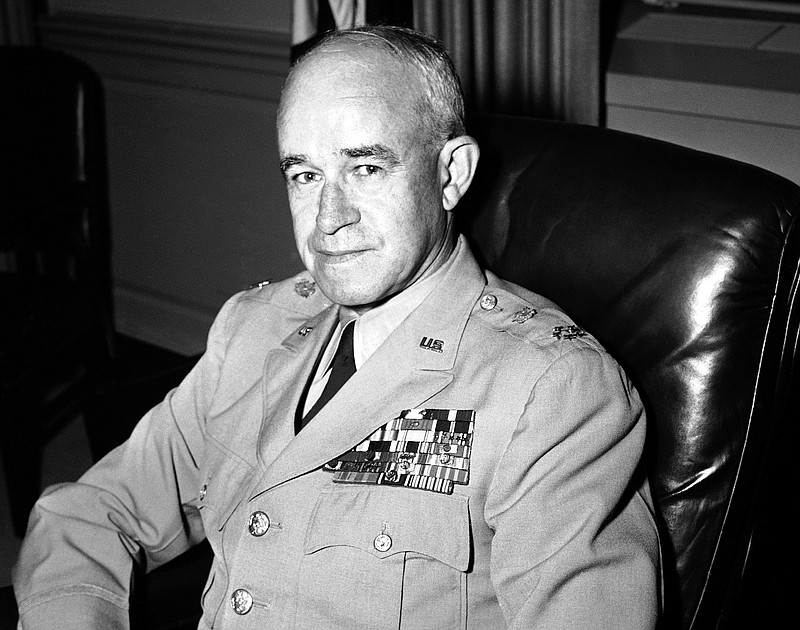In the fall of 1976, part of my duties as a senior cadet at the Air Force Academy included evaluating cadet squadrons as they marched to the noon meal. One day, five-star Gen. Omar Bradley also reviewed the noon meal formation. I knew a lot about the "GI's General" and his compassion and grace upon the hellish battlefields of Europe in World War II, so I stood strategically by the door the general would enter and snapped a crisp salute to the 83-year-old hero. From his wheelchair, he sharply returned my salute. It was a thrill I will never forget.
What made Gen. Bradley unique? Perhaps it was his faith in the Bible and its role in defining his ethical choices. He once wrote, "We have grasped the mystery of the atom and rejected the Sermon on the Mount. The world has achieved brilliance without conscience. Ours is a world of nuclear giants and ethical infants."
Those are powerful and humbling words from a man whose military career spanned the age of horse-drawn artillery to the age of intercontinental nuclear weapons. In light of recent senseless acts of evil such as the Las Vegas massacre, the Sutherland, Texas, church shootings, and, more locally, the alleged rape of a Grundy County football player by his teammates, there is no question that many Americans are "moral infants." How do we help them?
There are no easy answers. A free society cannot dictate prescribed teachings of any religious denomination or belief system, and our Constitution rightly assures us of that freedom. However, we have a responsibility to teach our children the ethical foundations of Western culture. The foundational role of the Bible in that ethical development as well as its impact on our art, literature, law, philosophy, government, philanthropy, education and social justice cannot be overestimated.
American public school children have more educational opportunity than any society in history. Our teachers are educated in the latest learning theories. Digital technology offers creativity and knowledge to students in ways never dreamed of a generation earlier. Higher education has never been more available. Yet, Gen. Bradley's fear is reality: We have achieved "brilliance without conscience."
Fortunately, in 23 Hamilton County public schools, many middle and high school students have an opportunity to achieve both brilliance and conscience because of the Bible in the Schools (BITS) program. This program has been an invaluable part of our public schools since 1922 and was upheld in federal court in 1980. It is totally funded by donors; no tax dollars are used. It is not evangelical, and teachers and administrators carefully follow federal guidelines to ensure the elective courses focus on the Bible as a book of historical and literary importance, not espousing any particular religion. The 3,800 students taking the elective annually include students from Jewish, Muslim, Hindu, Buddhist, atheist, agnostic and Christian backgrounds.
Ironically, the writings of William Shakespeare, which many academicians consider critical for students of Western culture, contain more than 1,200 direct references to the Bible. Many scholars think there could be twice that number. Why teach Shakespeare yet ignore a profound influence on his writing?
The Bard of Avon answers best in "Henry VI": "Ignorance is the curse of God; knowledge is the wing wherewith we fly to heaven."
We can't change the world, but we can change our little corner of it. To learn more, visit bibleintheschools.com.
Roger Smith, a local author, is a frequent contributor to the Times Free Press.
